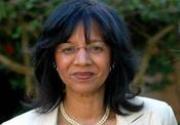
The Eastern Cape education department remains in the news for all the wrong reasons. From court battles between unions, provincial and national departments, teacher strikes, the state of education in the province suffers.
In 2011, the Eastern Cape had the lowest (58,1%) matriculation rate in the country. Particularly in mathematics, 78,6% of the 38 801 students who wrote the subject scored below 40%. Only 45% of pupils took maths.
Dr Rose Spanneberg, Director of the Rhodes University Mathematics Education Programme (Rumep), laments: “People who teach in rural schools often don't have adequate expertise or qualifications.”
This is why Rumep has, since 1993, made improving the competency and confidence of maths teachers in the rural areas of Eastern Cape their priority.
Rumep runs a four-pronged programme which supports teachers to obtain an Advanced Certificate in Education (ACE) or a Bachelor of Education; helps rural schools gain access to computer resource centres and develops innovative teaching materials for maths teachers.
Rumep’s collegial clusters project fosters communities of maths-teaching excellence around the province.
The project brings together groups of committed teachers who live and work close to each other. These are led by graduates of their ACE programme, to form autonomous units who meet regularly to share maths-teaching practices.
These groups are proving effective. In 2010, Rumep recorded a 30% average increase in the marks of Grade 3 pupils of Rumep teachers. More than 350 teachers have graduated with an ACE or prior to that a Further Diploma in Education.
In 2010, 29 ACE students graduated, with two distinctions.
The 13 Rumep clusters have impacted on 45 000 pupils from 480 schools and 488 teachers who actively participate.
Each cluster forms a base for a resource centre shared by schools. Rumep has also authored 10 maths teaching aids, a godsend when teachers do not have textbooks, let alone supplementary materials.
Clusters consist of on-site professional training and personal support structures for Rumep teachers.
According to Spanneberg “teachers and staff dread maths”. She says: “If a teacher isn't confident, the pupils won’t be confident.”
Teachers are encouraged to reflect on their teaching by keeping journals and sharing teaching experiences and difficulties with each another.
In 2007, Kinsey published a report on the best-performing school systems in the world. One reason for their excellence is their ability to get the right people to become teachers.
Teacher-training in these societies are highly selective. Ironically, the selectiveness of South African teacher training has to do with the fact that not enough candidates can afford to study, many struggle to graduate and too few want to enter the profession.
Rumep addresses these shortfalls in the teacher-training system. Specifically, it elevates the status of teaching in South Africa. Their cluster mechanism makes highly qualified teachers accessible to their peers, motivating fellow teachers, while attracting aspirant teachers to the profession.
Teachers feel inspired to further their professional development after interacting with Rumep graduates and build professional relationships with these mentors.
The Eastern Cape education department needs to institutionalise Rumep to train effective maths teachers and upscale proven solutions from their own backyard.
By Rhoda Kalie
Source: The Citizen Online
